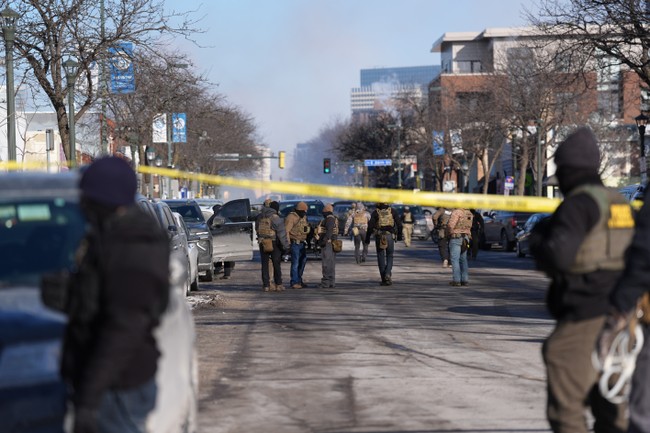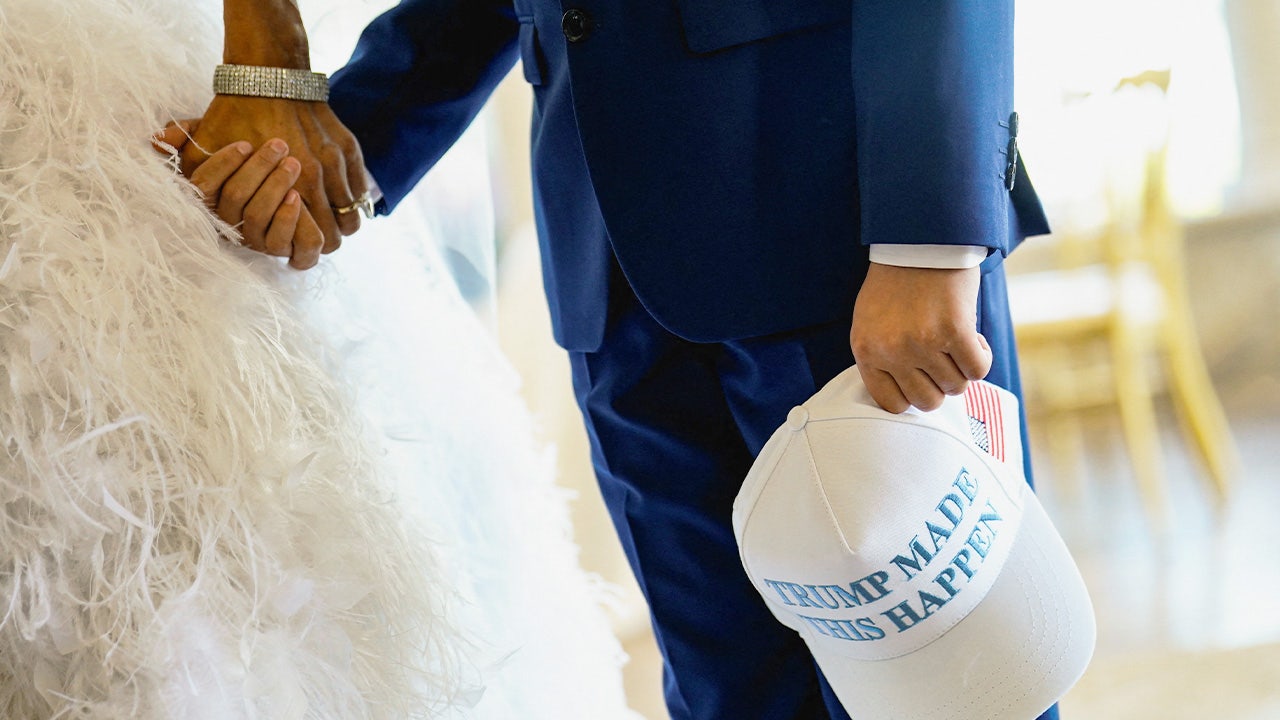I’ve read the 1989 Tom Clancy novel. I’ve seen the 1994 Harrison Ford movie. Dude, I’m … nervous.
On the other hand, nothing about the mission reported by both the Miami Herald and the Wall Street Journal has any pretense of covert action. In Clear and Present Danger, a president abused executive authority to launch an undeclared war against Colombian drug cartels as personal revenge over the death of a friend. Donald Trump has broader, and arguable more legitimate, stakes in mind.
First, from the Miami Herald:
The Trump Administration has made the decision to attack military installations inside Venezuela and the strikes could come at any moment, sources with knowledge of the situation told the Miami Herald, as the U.S. prepares to initiate the next stage of its campaign against the Soles drug cartel.
The planned attacks, also reported by the Wall Street Journal, will seek to destroy military installations used by the drug-trafficking organization the U.S. says is headed by Venezuelan strongman Nicolás Maduro and run by top members of his regime.
Sources told the Herald that the targets — which could be struck by air in a matter of days or even hours — also aim to decapitate the cartel’s hierarchy. U.S. officials believe the cartel exports around 500 tons of cocaine yearly, split between Europe and the United States.
The WSJ reminds its readers that Trump applied strong economic and political pressure in his first term to push Venezuelans into regime change. This new campaign has the same end goal, with a much more muscular approach to the military and its narco-trafficking support systems:
The arrival of the carrier, with its additional destroyers equipped with long-range Tomahawk land attack missiles, F/A-18 Super Hornet jet fighters and EA-18 Growler aircraft designed for electronic jamming, will give the president a range of additional options for striking Venezuela, experts said.
If airstrikes don’t force Maduro out of power, they could potentially pressure his inner circle to turn against him, analysts say. However, such a strategy carries tremendous risks and could potentially backfire if troops rally around the flag and put up a fight. Many analysts who have closely tracked Venezuela also say the indictments against Maduro and his top aides underscore for him how costly it would be to leave power, as they could end up facing prosecution.
“I think Maduro will tough it out, at least for one round,” said retired Adm. James Stavridis, who commanded U.S. troops in the region during his career. If strikes on naval and air force targets ashore don’t force Maduro to resign, the next round of strikes could go after leadership targets, he said.
“I think at that point, it is possible Maduro will fold his cards and go. That would be the best case outcome for the Trump administration,” Stavridis said.
The very first question this prompts is whether presidents can order such strikes on other nations without action from Congress. The Constitution gives the power to declare war to Congress, but left other uses of military force somewhat ambiguous in hopes that tensions between the executive and legislative branches would prevent adventurism. The War Powers Act, however, blurred a lot of these lines over the last 50 years, part of a century-long trend of Congress essentially abdicating its constitutional duties in order to avoid tough votes and accountability.
Trump actually pushed the boundary on the WPA in June when he ordered military attacks on Iranian nuclear facilities during the Twelve Days War between Israel and Iran, but that itself was hardly unprecedented. Barack Obama ordered attacks on Moammar Qaddafi fourteen years earlier in a successful attempt at regime collapse. Trump at least had a clearer pretext for action against Iran this summer, as the mullahs had spent decades threatening to destroy the US and were developing nuclear weapons for that purpose. The Iranian nuclear program had been a clear and present danger to America and its allies and interests for two decades, and it was about to turn imminent when Trump took action.
However, Trump also limited that action and expressly repudiated regime change (unlike Obama regarding Libya in 2011). If the reporting is accurate on this action, regime change is the desired outcome, and that makes it closer to an actual war. Despite the language of Clancy’s book (and the movie), there is nothing in the War Powers Act that requires or even acknowledges a presidential declaration of a “clear and present danger” to initiate military action. Instead, it requires a specific set of circumstances in Section 2(c) to exist before a president can order military hostilities:
The constitutional powers of the President as Commander-in-Chief to introduce United States Armed Forces into hostilities, or into situations where imminent involvement in hostilities is clearly indicated by the circumstances, are exercised only pursuant to (1) a declaration of war, (2) specific statutory authorization, or (3) a national emergency created by attack upon the United States, its territories or possessions, or its armed forces.
It’s worth noting that Obama ordered attacks on the Qaddafi regime without any of these conditions. Instead, he and Samantha Power offered up a bizarre doctrine of “responsibility to protect” dissenters and rebels in Libya from military suppression by Qaddafi’s forces. That contrasted sharply with George W. Bush’s approach, where he went to Congress to get Authorizations to Use Military Force (AUMFs) for action in both Afghanistan after 9/11 and Iraq in 2003, both of which remain in effect. The first AUMF was perhaps unnecessary, given that it followed a state-supported attack by al-Qaeda against the US and military action could have commenced under Section 2(c)(3), but Bush at least dotted the Is and crossed the Ts.
These, however, are the technical answers to the question. The practical answer is that presidents can now pretty much do whatever they like, because a supine Congress refuses to do anything about it. Congress passed the WPA in 1973 so that its members could wash their hands of political responsibility for the use of military force. Obama was so arrogant about it that he entirely ignored the reporting requirements to report to Congress in Sections 3 and 4 of the WPA about his sustained attacks on Qaddafi and his regime. Congress didn’t do anything about it at all, even though his military action never met the requirements of Section 2(c). Why? Because Obama used the WPA pretty much for its intended purpose.
Trump is basically following Obama’s precedent, albeit with a clearer direct threat to the US in the Maduro regime’s connection to narco-traffickers attempting to distribute within the US. Whether that amounts to a “national emergency created by an attack on the United States” is (very) debatable, but it’s a lot closer to that standard than the Obama/Power “responsibility to protect” doctrine. And it’s also entirely academic, since Congress set this precedent with Obama and won’t do anything about Trump attacking Maduro in this instance, except gripe from the sidelines.
So yes, Trump can do this, not because it’s legal (iffy) but because Congress handed over its gonads decades ago. However, that doesn’t mean it would be wise. Obama set this precedent, but it’s worth considering what resulted from Obama’s remote-control regime change in Libya, too. Qaddafi was at least in control of the country, cooperating with the US after the fall of Saddam Hussein, and was fighting the same or similarly oriented terror networks we were fighting in Iraq and eastern Syria. Decapitating the Qaddafi regime collapsed Libya into a failed state, which it remains to this day, controlled by warlords and radical Islamist terror networks. It also touched off a massive refugee migration into Europe, which has created crisis after crisis in previously stable Western nations.
Collapsing the Maduro regime could have the same outcome, only with drug cartels seizing power, unless the Venezuelan military conducts a coup — which would likely result in a junta of indeterminate orientation and even more indeterminate length. We should learn the lesson of Obama’s adventurism in 2011, not repeat the same mistakes.
Editor’s Note: Thanks to President Trump and his administration’s bold leadership, we are respected on the world stage, and our enemies are being put on notice.
Help us continue to report on the administration’s peace through strength foreign policy and its successes. Join Hot Air VIP, VIP Gold, or VIP Platinum, and use promo code POTUS47 to get 74% off your membership!
Read the full article here






![146 Illegal Alien Truck Drivers Arrested in Indiana During Operation Midway Blitz [WATCH] 146 Illegal Alien Truck Drivers Arrested in Indiana During Operation Midway Blitz [WATCH]](https://www.lifezette.com/wp-content/uploads/2025/10/2025.10.31-12.32-lifezette-6904ac47eb9b4.jpg)





